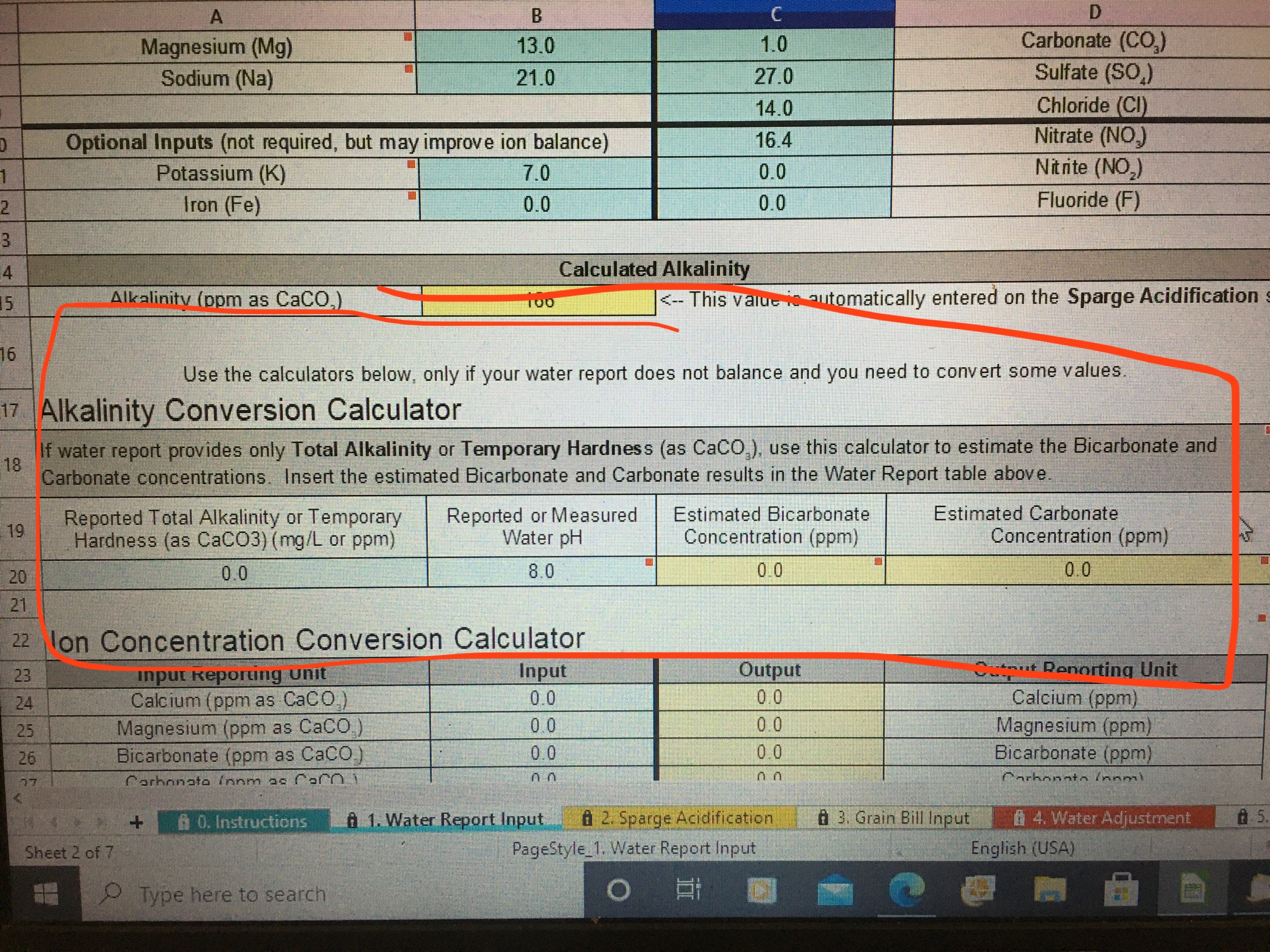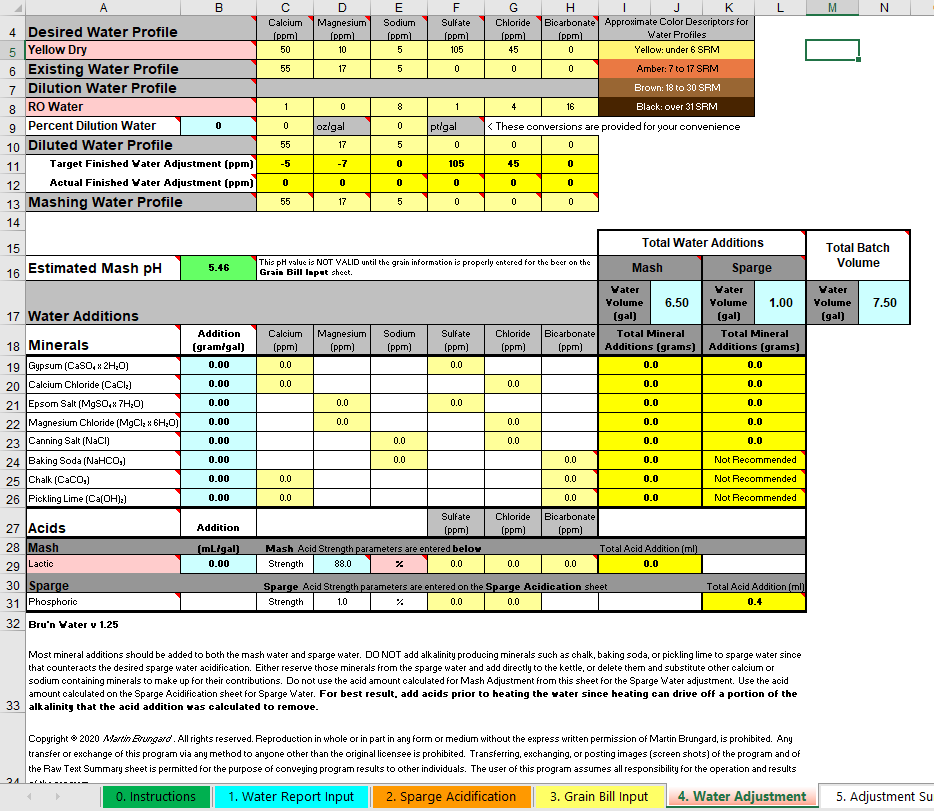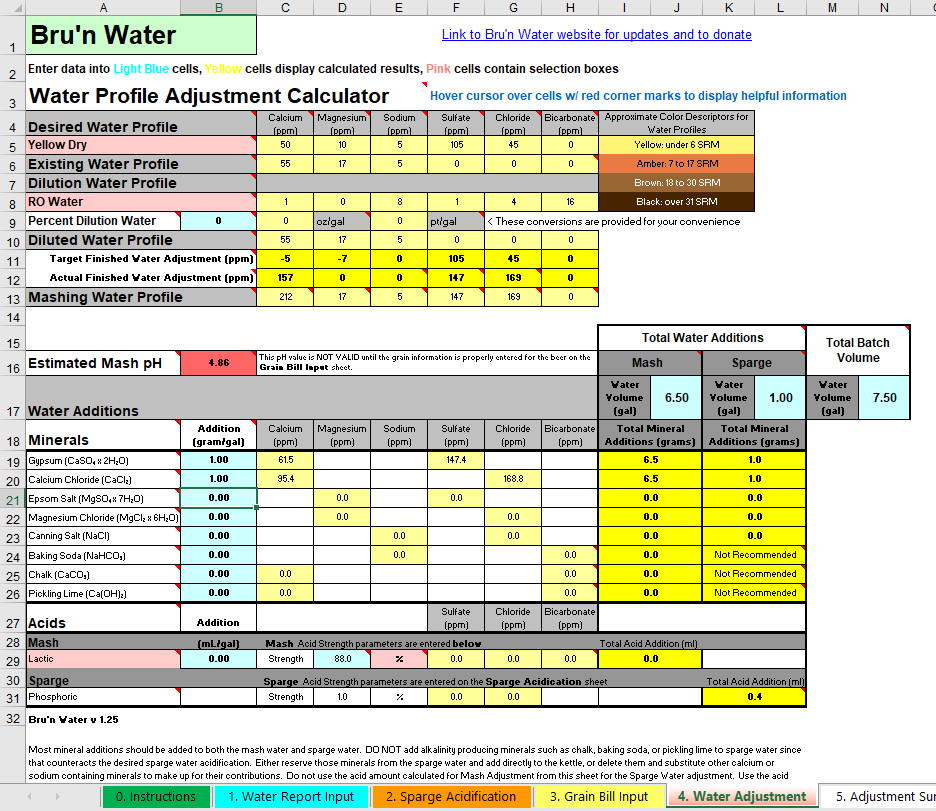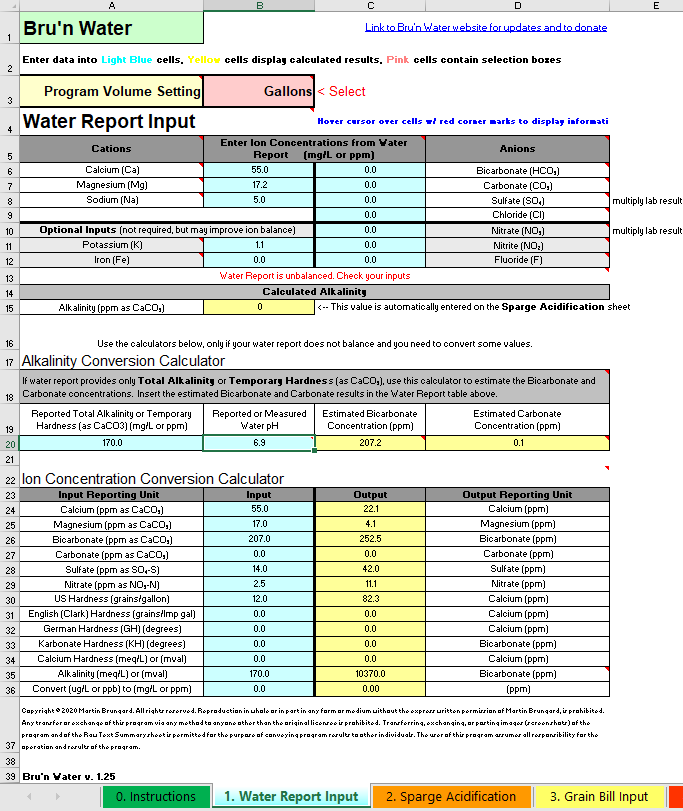DarrellQ
Well-Known Member
I've read a lot about water chemistry from Palmer and others. I've subscribed to Bru N'Water, etc. and I still can't quite figure it out as far as telling me exactly what to add. I'm set on using my well water because (1) it's readily available; and (2) it's the best water I've ever tasted. I would think it should brew great beer.
My water report shows (all mg/L):
Alkalinity (total hardness as CaCO3) 170
Hardness: 210
Calcium: 55
Magnesium: 17
Sodium: 5
pH: 6.9
Sulfate: 14
What salts, gypsum etc. would you add per gallon to brew a Pale Ale? Thank you.
My water report shows (all mg/L):
Alkalinity (total hardness as CaCO3) 170
Hardness: 210
Calcium: 55
Magnesium: 17
Sodium: 5
pH: 6.9
Sulfate: 14
What salts, gypsum etc. would you add per gallon to brew a Pale Ale? Thank you.

















![Craft A Brew - Safale S-04 Dry Yeast - Fermentis - English Ale Dry Yeast - For English and American Ales and Hard Apple Ciders - Ingredients for Home Brewing - Beer Making Supplies - [1 Pack]](https://m.media-amazon.com/images/I/41fVGNh6JfL._SL500_.jpg)












































